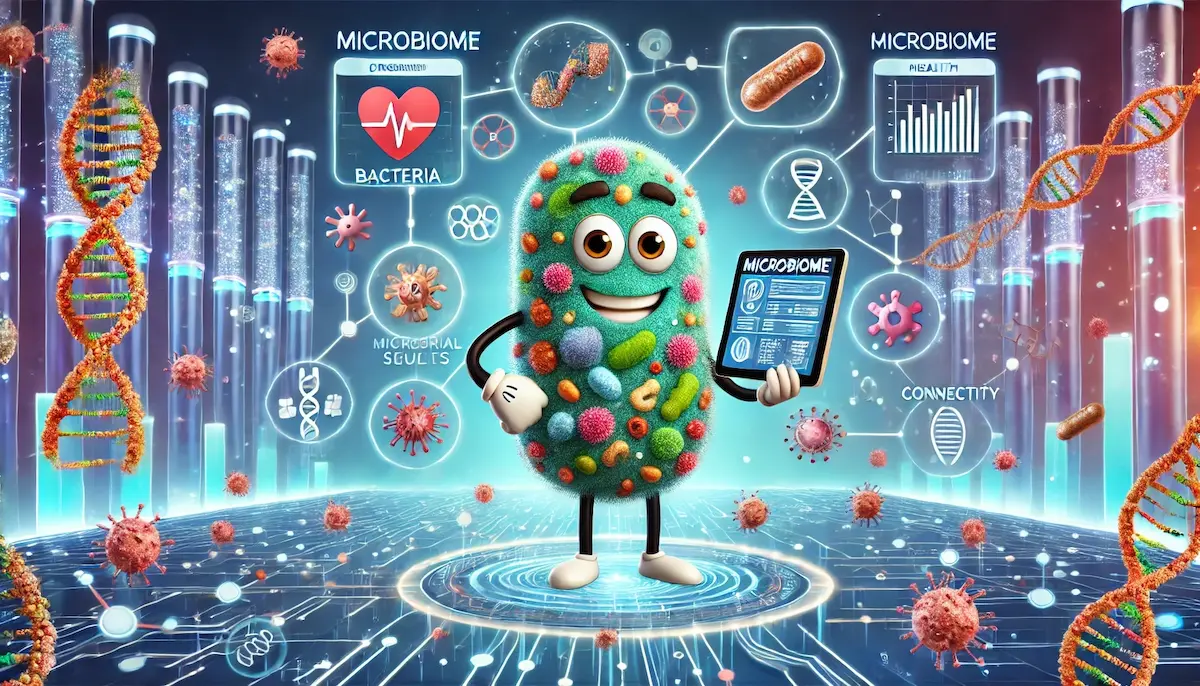The human body is home to trillions of microorganisms, collectively known as the microbiome. These tiny organisms, including bacteria, viruses, fungi, and other microbes, live on our skin, in our mouths, and especially in our digestive systems. The microbiome plays a crucial role in our health, influencing everything from digestion to immunity and even mental well-being.
What is the Microbiome?
The microbiome refers to the diverse community of microorganisms that live in and on our bodies. While these microbes are found throughout the body, the gut microbiome, located in the intestines, is the most well-studied and abundant. The microbiome is not just a random collection of microbes; it is a dynamic ecosystem that interacts with our body’s systems, impacting our health in profound ways.
The Role of the Microbiome in Health
1. Digestion and Nutrient Absorption
One of the primary functions of the gut microbiome is to aid in digestion. The microbes in our intestines help break down complex carbohydrates, fibers, and other substances that our bodies cannot digest on their own. In doing so, they produce essential nutrients, such as short-chain fatty acids, which are vital for gut health and overall well-being. A healthy microbiome ensures efficient digestion and optimal nutrient absorption.
2. Immune System Support
The microbiome plays a crucial role in the development and function of the immune system. It helps train the immune system to distinguish between harmful pathogens and harmless substances, reducing the risk of autoimmune diseases and allergies. A diverse and balanced microbiome is essential for maintaining a robust immune response and protecting against infections.
3. Mental Health and Brain Function
Emerging research has revealed a fascinating connection between the gut microbiome and the brain, often referred to as the “gut-brain axis.” The microbes in the gut produce neurotransmitters like serotonin, which influence mood, stress responses, and cognitive function. An imbalance in the microbiome, known as dysbiosis, has been linked to mental health conditions such as depression, anxiety, and even neurodegenerative diseases.
4. Metabolism and Weight Management
The microbiome also plays a role in metabolism and weight regulation. Certain gut bacteria influence how the body stores fat, uses energy, and regulates appetite. Studies have shown that individuals with obesity often have a different composition of gut bacteria compared to those with a healthy weight. This suggests that the microbiome could be a target for interventions aimed at preventing or treating obesity.
5. Protection Against Disease
A healthy microbiome helps protect against various diseases, including inflammatory bowel disease (IBD), irritable bowel syndrome (IBS), diabetes, and cardiovascular disease. The microbes in the gut produce anti-inflammatory compounds and compete with harmful pathogens, reducing the risk of chronic diseases. Conversely, an imbalanced microbiome can contribute to inflammation and disease development.
Factors That Influence the Microbiome
1. Diet
Diet is one of the most significant factors affecting the composition of the microbiome. A diet rich in fiber, fruits, vegetables, and fermented foods promotes a diverse and healthy microbiome. Conversely, a diet high in processed foods, sugar, and unhealthy fats can lead to dysbiosis and a less diverse microbial community.
2. Antibiotics
While antibiotics are essential for fighting bacterial infections, they can also disrupt the microbiome by killing beneficial bacteria along with harmful ones. Repeated or inappropriate use of antibiotics can lead to long-term changes in the microbiome, increasing the risk of infections and chronic diseases.
3. Environment and Lifestyle
The environment we live in, including our exposure to different microbes, hygiene practices, and stress levels, can all impact the microbiome. For example, excessive cleanliness and the overuse of antibacterial products can reduce microbial diversity. On the other hand, spending time in nature and interacting with animals can introduce beneficial microbes to the body.
4. Birth and Early Life
The microbiome begins to develop at birth, with factors such as mode of delivery (vaginal birth vs. cesarean section) and breastfeeding playing crucial roles in shaping an infant’s microbiome. Early life exposures, including diet and antibiotic use, can have lasting effects on the microbiome and influence health outcomes later in life.
Maintaining a Healthy Microbiome
To support a healthy microbiome, it is essential to adopt a lifestyle that promotes microbial diversity and balance. This includes:
- Eating a varied diet rich in fiber, fruits, vegetables, whole grains, and fermented foods like yogurt, kefir, and sauerkraut.
- Limiting processed foods and sugars, which can disrupt the microbiome.
- Using antibiotics only when necessary and under the guidance of a healthcare provider.
- Incorporating prebiotics (foods that feed beneficial bacteria) and probiotics (live beneficial bacteria) into your diet.
- Managing stress and getting regular exercise, both of which positively influence the microbiome.
- Spending time outdoors and interacting with a variety of environments to introduce new microbes to your system.
The Future of Microbiome Research
The study of the microbiome is a rapidly growing field with the potential to revolutionize medicine and personalized healthcare. Scientists are exploring ways to manipulate the microbiome to treat or prevent diseases, develop new probiotics and prebiotics, and better understand the complex interactions between our microbes and our bodies. As research progresses, the microbiome may hold the key to unlocking new strategies for improving health and well-being.
Blockfine thanks you for reading and hopes you found this article helpful.
